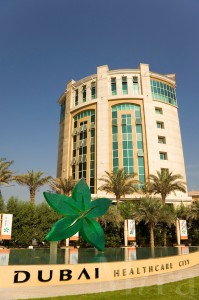In recent years, there’s been quite a bit of buzz around Big Pharma’s expansion into BRIC countries – Brazil, Russia, India and China. For industry superstars, emerging markets have proven fertile ground for clinical research, manufacturing, drug discovery, and numerous other outsourced operations. But as activity begins to slow in the BRIC, Pharma is already looking elsewhere for new profit and growth potential. According to the Wall Street Journal, there are several major developments slated to unveil next year in the Middle East. Amongst other treatable conditions, diabetes is of growing concern throughout the region – and has prompted companies like Merck and Pfizer to launch new divisions and forge new alliances across the Persian Gulf.
Merck sets sights on Bahrain
With investments totalling a whopping $93 million, Merck has partnered with Gulf Biotech Co. to build an insulin plant on the island nation of Bahrain. Gulf is backed by a Saudi-owned holdings company and together with Merck and a few other investors, plans to open the 16,000-square-meter plant by the middle of 2015. At peak production, it is expected to produce 42 million units of insulin, all made to conform to the FDA’s pharmaceutical quality control measures. And while Merck has announced job and budget cuts at home, the new venture is expected to create positions for 250 Saudis and Bahrainis.
Pfizer moves into Saudi Arabia
In March of last year, Pfizer started work on a manufacturing plant in Rabigh – a project slated for completion in 2015. It’s Pfizer’s first project in the region, which is known as the Gulf Cooperation Council area and includes Kuwait, Bahrain, Qatar, the United Arab Emirates and the Sultanate of Oman. The manufacturing center will produce a range of Pfizer products, expected to turn out around 18 million packets per year. Although the political and regulatory climate is tough, researchers predict that the rapidly growing population and demand for drugs could spell generous profits for companies willing to brave instability across the region.
U.A.E. generic drug boom
The U.A.E. has jumped onboard the Middle East drug boom, boosting the local production of generics by lifting restrictions on the importation of active ingredients. As of last summer, the U.A.E. Ministry of Health announced that factories will be allowed to import active substances for the purposes of research and development before the patent expiry date. The move will revolutionize the local business of generic production by facilitating earlier testing and compliance with pharmaceutical quality assurance, preparing new drugs for release immediately following patent expiry. The new policy will benefit both the region’s pharma companies and its customers by expediting access to much needed therapies.
Do you think Big Pharma’s residency in the Middle East will squeeze out local companies or facilitate promising partnerships?




